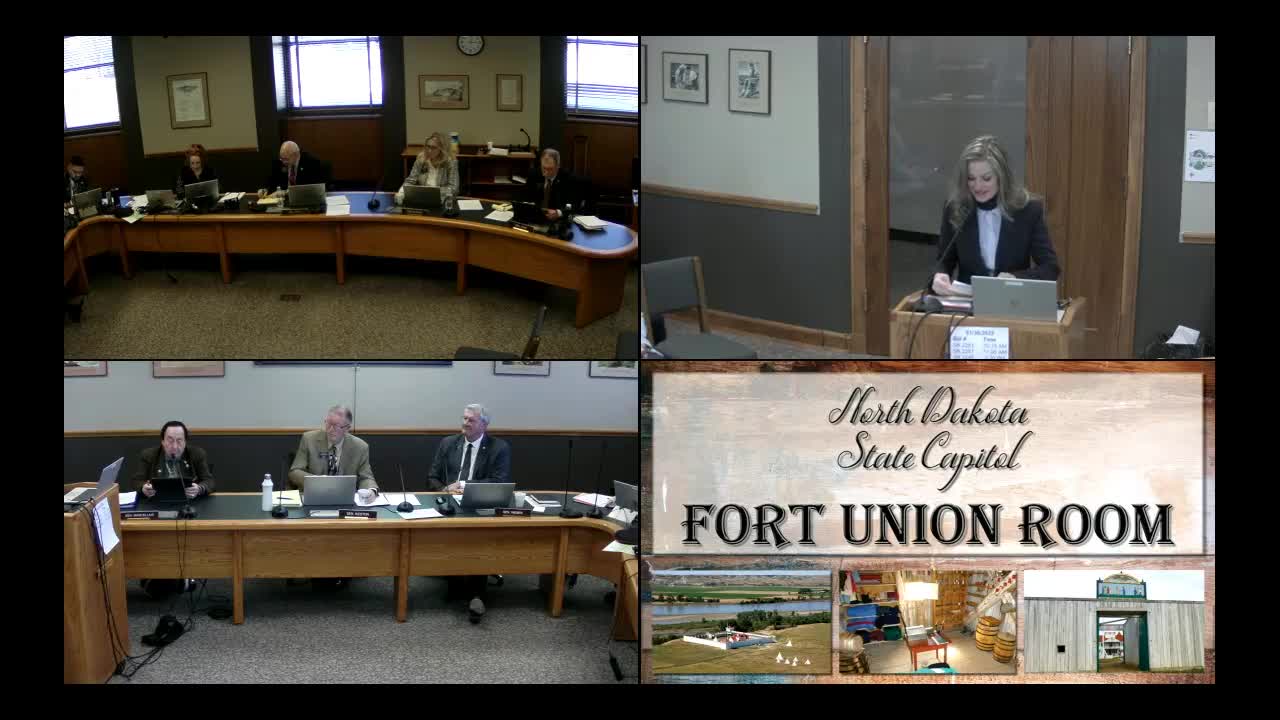Dr. Matheryn showcases carbon study on grazing's positive impact at North Dakota ranch
January 30, 2025 | Agriculture and Veterans Affairs, Senate, Legislative, North Dakota
This article was created by AI summarizing key points discussed. AI makes mistakes, so for full details and context, please refer to the video of the full meeting. Please report any errors so we can fix them. Report an error »

In a recent meeting of the Senate Agriculture and Veterans Affairs Committee, discussions centered on the potential benefits of carbon management in North Dakota's ranching practices. Senator Matheryn highlighted the growing interest in carbon issues among residents, emphasizing the need for a comprehensive study led by experts in carbon cycle science.
The meeting featured insights from a local scientist who has dedicated over two decades to studying the carbon cycle. He explained how modern technology allows for real-time evaluation of grazing practices on pasture ecosystems, revealing that managed grazing can positively impact carbon sequestration in grasslands. This finding is particularly significant for ranchers, as it provides them with data to better understand how their management practices affect both soil health and carbon levels.
The scientist shared results from a study conducted on a working ranch in McKenzie, where it was found that grazing management led to a net increase in carbon stored in the ecosystem. Specifically, the study measured carbon dioxide fluxes and demonstrated that, under proper management, ranchers could enhance both their land's productivity and its carbon storage capacity. This information is crucial for ranchers who are increasingly interested in sustainable practices that also improve their bottom line.
The committee discussed the broader implications of these findings, noting that they could help shift the narrative around cattle ranching from one of environmental harm to one of ecological benefit. By showcasing how responsible grazing can contribute to soil health and carbon sequestration, North Dakota has the opportunity to position itself as a leader in sustainable ranching practices.
In conclusion, the meeting underscored the importance of integrating scientific research with practical ranching strategies. As North Dakota explores the intersection of agriculture and environmental stewardship, the insights gained from these studies could pave the way for more informed policies that benefit both ranchers and the environment.
The meeting featured insights from a local scientist who has dedicated over two decades to studying the carbon cycle. He explained how modern technology allows for real-time evaluation of grazing practices on pasture ecosystems, revealing that managed grazing can positively impact carbon sequestration in grasslands. This finding is particularly significant for ranchers, as it provides them with data to better understand how their management practices affect both soil health and carbon levels.
The scientist shared results from a study conducted on a working ranch in McKenzie, where it was found that grazing management led to a net increase in carbon stored in the ecosystem. Specifically, the study measured carbon dioxide fluxes and demonstrated that, under proper management, ranchers could enhance both their land's productivity and its carbon storage capacity. This information is crucial for ranchers who are increasingly interested in sustainable practices that also improve their bottom line.
The committee discussed the broader implications of these findings, noting that they could help shift the narrative around cattle ranching from one of environmental harm to one of ecological benefit. By showcasing how responsible grazing can contribute to soil health and carbon sequestration, North Dakota has the opportunity to position itself as a leader in sustainable ranching practices.
In conclusion, the meeting underscored the importance of integrating scientific research with practical ranching strategies. As North Dakota explores the intersection of agriculture and environmental stewardship, the insights gained from these studies could pave the way for more informed policies that benefit both ranchers and the environment.
View full meeting
This article is based on a recent meeting—watch the full video and explore the complete transcript for deeper insights into the discussion.
View full meeting
